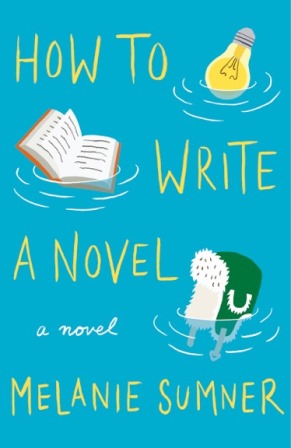You published your book! Yay! All over town, people you know and sort of know congratulate you. Many read about you in the local paper; they joke about your fame, but their pride in your accomplishment is heartfelt. You feel awkward but pleased — aw shucks – until you hear:

- I’d love to read it. Is it at the library?
- I want a copy. Do you have an extra?
- My sister-in-law’s co-worker’s mother bought a copy, and I’m waiting in line to borrow it.
Wait a minute! Your book costs less than the price of two lattes and is available in bookstores and online, in three formats. You gulp a “thanks” and wave as the well-wisher drives off in a Mercedes.
What is going on here? I’ve taken a few guesses and come up with some solutions.
1) Some people aren’t in the habit of buying books.
Solution: Without being a Pushy Patty, encourage potential buyers to take the plunge. If you receive a digital congratulations, reply with gratitude and the link on your website that leads them to your book sellers. Busy people will appreciate this shortcut to a purchase. For face-to-face encounters, have cards printed with information about your booksellers. Keep in mind that older people may not be comfortable buying online.
2) Most people don’t understand the book business.
Solution: Without going into detail about the tiny percentage you make off each book after enough copies have sold to pay back your advance (yawn) and the percentage of that siphoned off to your agent (double yawn) and taxes (stop!), find a phrase that sums up the enterprise. Example: It’s a numbers game. The more copies sold, the more books I get to write.
3) A few people (gasp!) don’t like your writing.
Let’s say you baked a meatloaf. Some people won’t like it because their mothers used ketchup instead of tomato sauce. Some people do not like meatloaf. Some people are vegetarians. Or, you may need to brush up on your writing—I mean, cooking—skills.
Solution: When someone you know writes a book, buy it. If you know so many authors that you would go bankrupt doing this, buy the work of those people you would like to buy your work. If you want to save trees and space on your shelf, download the digital copy. Let these authors know that you bought their books. You don’t have to say what you thought about the book, or even that you read it. Karma alert: Do not lie about this.
4) Some people are broke.
Solution: If you truly want to share your book with a reader who has empty pockets, buy one for that person — at full price from a firsthand retailer. Ouch, but yes. Numbers drive sales. Sales drive sales. Early in your career, you won’t make much off your percentage, but publishers and agents are watching the copies sold/copies returned ticker. Strong sales, or even okay sales on the first book make it easier to sell your second manuscript. Also, paying full price for your own book keeps you cognizant of its value. The next time a wealthy person asks to borrow your book from you (this actually happens), you will rightly hesitate. Finally, when you buy your book for someone, it is truly a gift.
5) Your karma needs repair.
See solution to #3.
You may be reading this, nodding your head, and thinking in the back of your mind, but I have that box of extra copies my publisher sent me. Warning: hands off that box! You will need your personal copies for the following:
- Awards and grants. The selection committee often asks for at least one copy of your published works.
- Teaching and dditing Jobs: ditto
- Writer’ colonies and residencies: ditto
- Writers’ conferences and workshops: ditto
- Radio and television stations and reviewers. Your publicist should have copies to send to these entities, but publishing houses also keep books close to their chests, so don’t let your box run dry. If your publishing house is small, you are probably your own publicist.
- Your heirs. Posterity gets at least one signed first edition in pristine condition. You never know.
- Your mother. You have to give Mom a copy. Even if she is swimming in money and belongs to seven mail-order book clubs. With my fourth book, I tried to get around this by telling Mom why she need to buy the novel from a store. Craftily, she offered to write me a check. I started to explain everything I have written here about book sales, but she really just wanted me to give her a copy. So I did.
Melanie Sumner, a recipient of the Whiting Writers' Award and a fellowship from The National Endowment for the Arts, is the author of the novel, How to Write a Novel (Vintage, August 2015), and the novels, The Ghost of Milagro Creek and The School of Beauty and Charm, as well as a collection of short stories, Polite Society. Her fiction has been published in The New Yorker, Harper's Magazine, and Seventeen. Previous awards include Best New Mexico Novel, The Maria Thomas Fiction Award for Peace Corps volunteers, and the regional pick for Granta's Best Young American Novelists. Melanie graduated from the University of North Carolina at Chapel Hill and earned her MFA from Boston University. Currently, she lives in Georgia and teaches at Kennesaw State University. Find about more on her website.
Comments